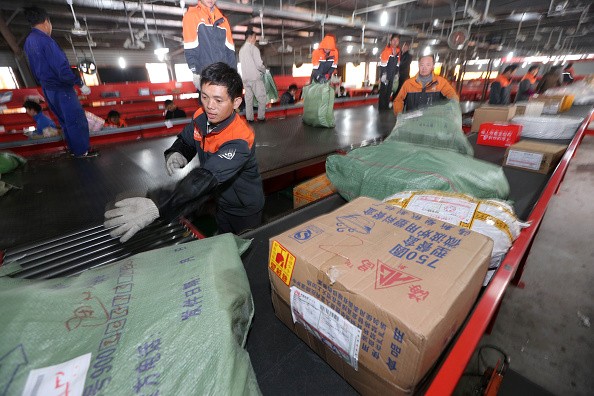Chinese courier companies may soon face fines of up to 50,000 yuan ($7,814) and have their licenses revoked if caught leaking customers' personal information, according to draft regulations posted online on Monday.
Under the proposed law, express companies should regularly destroy waybills and are forbidden from selling, leaking or illegally providing customers' personal data.
The draft was published online to solicit public opinion until Dec. 15, the Legislative Affairs Office of the State Council said.
The announcement spells good news for consumers worried about potential privacy threats under China's new "real name" policy for parcels. Since the beginning of November, personal identification and contact details are required in order to send parcels in response to a series of letter bombs that killed at least seven people and left dozens more injured between September and October in Guangxi Zhuang Autonomous Region.
Items that could endanger national security, social stability and public interest are banned from delivery, while delivery service staff are required to inspect parcels before packaging, the draft stipulated.
The regulation also addresses rough handling of parcels, which has led to several customer complaints.
Couriers who toss or mishandle packages in a way that could damage their contents could be fined up to 50,000 yuan as well as suspension of company operations.
Despite a cooling economy, courier services have increased steadily in China as online shopping has gained traction in the country.
According to data from the State Post Bureau, the sector has posted an annual growth of more than 50 percent for the past five years, with nearly 20 billion parcels expected to be shipped in 2015 alone.
On average, more than 10 parcels were delivered per person in 2014, though only half of the country is covered by delivery networks.



























